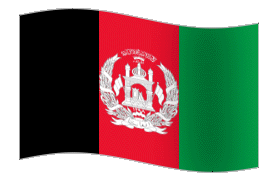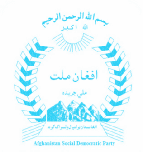BLAME GAME
By: Ajmal Shams
While the atmosphere still remains relatively tense as far as the relations between
the neighbouring Afghanistan and Pakistan are concerned, a window of opportunity
remains open in terms of a number of commonalties that define geo-
There has been a gradual increase in the Taliban insurgency, especially in the Southern
and Eastern Afghanistan over the past two years which has seriously hampered reconstruction
and developmental process besides putting the government credibility at stake. Pakistan
is being portrayed to be primarily responsible for this growing wave of the Taliban
activities and not without understandable reasons. It is not just the Afghan government
and intelligentsia, but also ordinary Afghans who have been pointing the accusing
finger at Pakistan that the former has been covertly collaborating with the insurgents.
While it is true that there might be certain elements in Afghan government who would
rather like this blame-
Most analysts tend to oversimplify the Taliban phenomena. They usually overlook the
multi-
Ever since the Soviet Invasion of Afghanistan and the subsequent events like Islamic revolution in Iran and the uprising in Kashmir and Palestine, Islamic extremism has been steadily growing particularly among the economically desperate classes of the Muslim Societies. Therefore the current wave of Islamic Radicalism, irrespective of the nature of its historical development, is a function of ideological, political and economic factors that are now affecting the Muslim societies in one way or another. The most desperate and economically disadvantaged groups in the Muslim world are the main targets of those seeking political advantage for their own extremist agendas. Soon after the tragic events of September 11, President Bush declared that terrorism in Afghanistan will be fought on three different fronts i.e. military, political and economic. Unfortunately the battle on political and economic fronts has not achieved its targeted objectives although billions of dollars have been spent so far and the efforts for reconciliation and bringing in the Taliban into the mainstream have not brought any substantial results.
As mentioned earlier, Afghanistan and Pakistan have never engaged in a serious dialogue
aimed at evolving a joint strategy to fight the growing terrorism in both countries,
with Afghanistan being the main target. The constantly increasing insurgency in Afghanistan
has made the political environment so tense which does not allow any friendly gesture
from either side to pave the way for restoring confidence. Pakistan with a well-
Both Pakistan and Afghanistan have been termed as failed states by US based organization Fund for Peace, ranking ninth and tenth on the failed states index respectively. It would be wise for them to do more to combat the menace of terrorism through a joint strategy, mutual trust and efficient information sharing system because the scourge of terrorism is the biggest enemy of stability and development.
President Musharraf during his recent visit to Afghanistan delivered a comprehensive
speech to a large gathering of Afghan parliamentarians and high-
The writer is President of the Afghanistan Social Democratic Party (well know as
Afghan Millat National Progressive Party) Courtesy: The News International -
دافغان ملت ملي مترقي ګوند

Afghanistan Social Democratic Party

Copyright © Afghan Millat 2007-